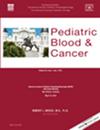Barriers and Facilitators to Comprehensive Pediatric Sickle Cell Care: A Qualitative Study
Abstract
Background
Children with sickle cell disease (SCD) require comprehensive care to prevent and treat serious and life-threatening complications and to access disease-specific treatment approaches that can improve outcomes. This study characterized barriers and facilitators to care for SCD in the context of the Conceptual Framework of Access to Care Model.
Methods
This qualitative descriptive study was conducted using semi-structured interviews with 27 patient/caregivers focused on sickle cell anemia (SCA; a subtype of SCD). Data were analyzed using directed content analysis with the model above as the initial coding framework.
Results
Themes were identified among healthcare system and patient/community-level factors. Healthcare system facilitators predominated themes, with a focus on the extent to which the healthcare services provided were a good match for the family and available and accommodating to patient and family needs. Additional facilitators at the patient/community level focused on whether patients and families could perceive and seek out, reach and pay for, and engage with healthcare. Barriers reflected the opposite experiences, with negative or challenging healthcare experiences and adverse social determinants of health interfering with access to care.
Conclusions
Barriers and facilitators were mapped to the Conceptual Framework of Access to Care Model, with facilitators playing a more substantial role than barriers in access to comprehensive care among children with SCA and their caregivers. A focus on optimizing facilitators at both the healthcare system and patient/family level may have a considerable impact on improving access to and engagement in care.

 求助内容:
求助内容: 应助结果提醒方式:
应助结果提醒方式:


